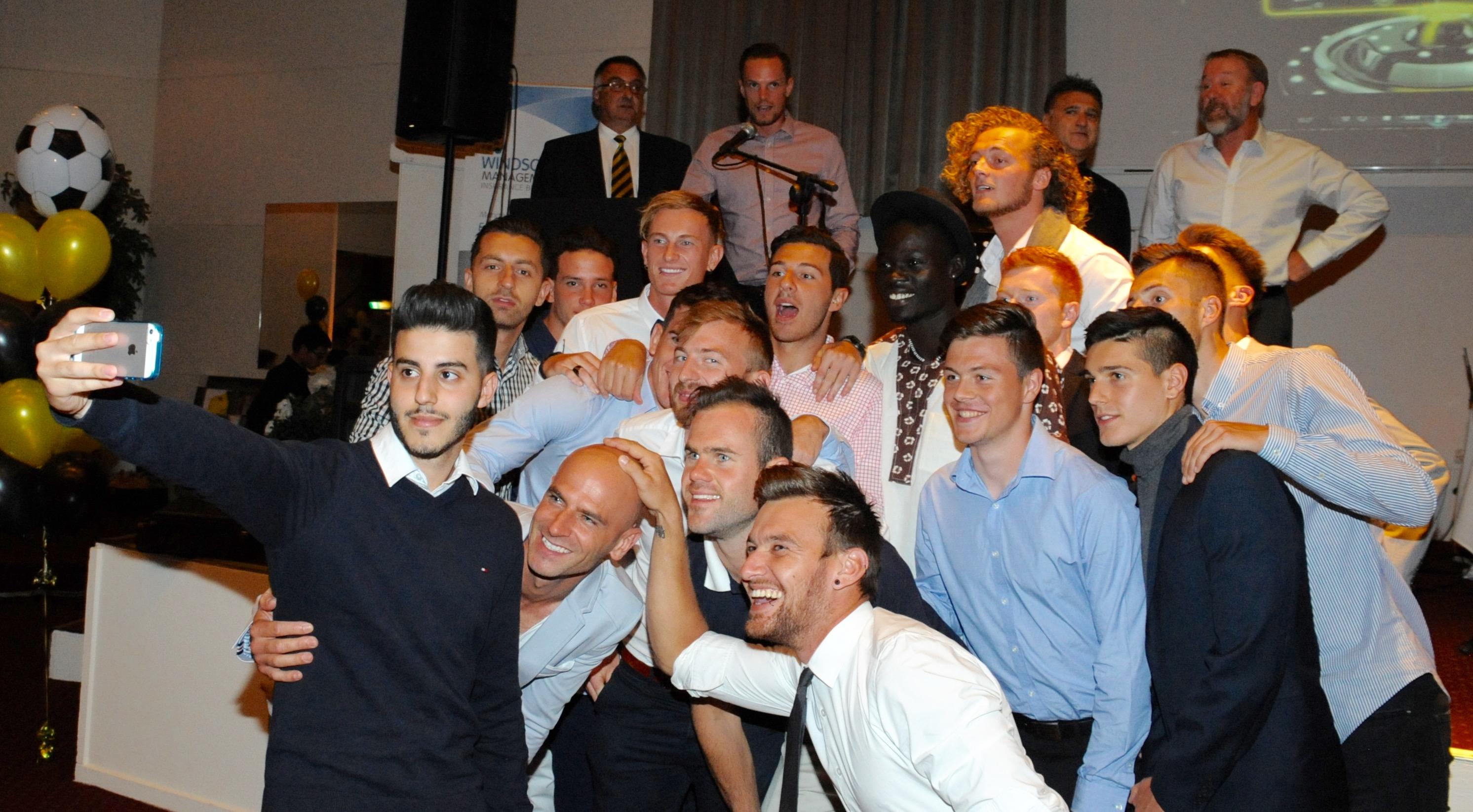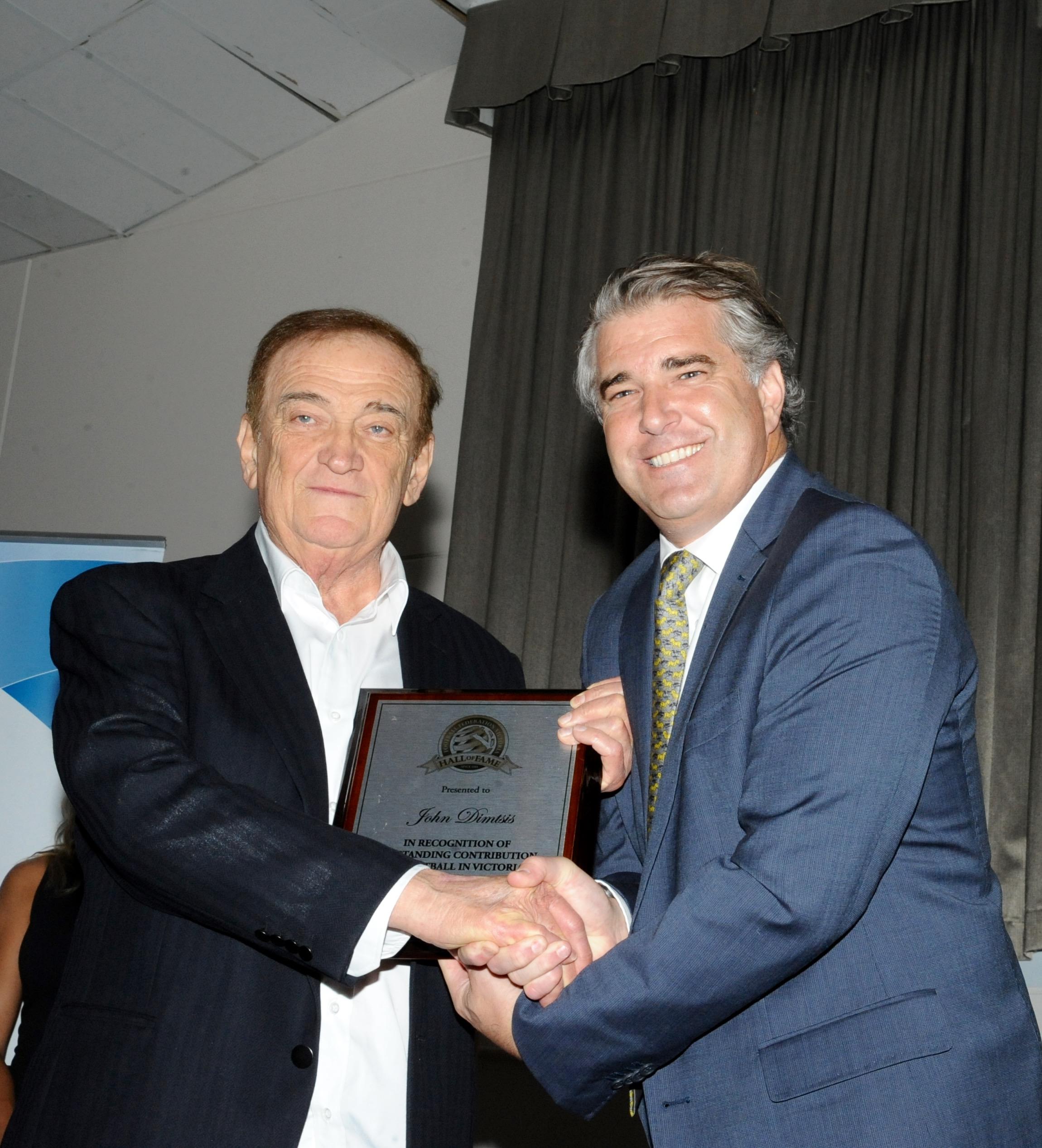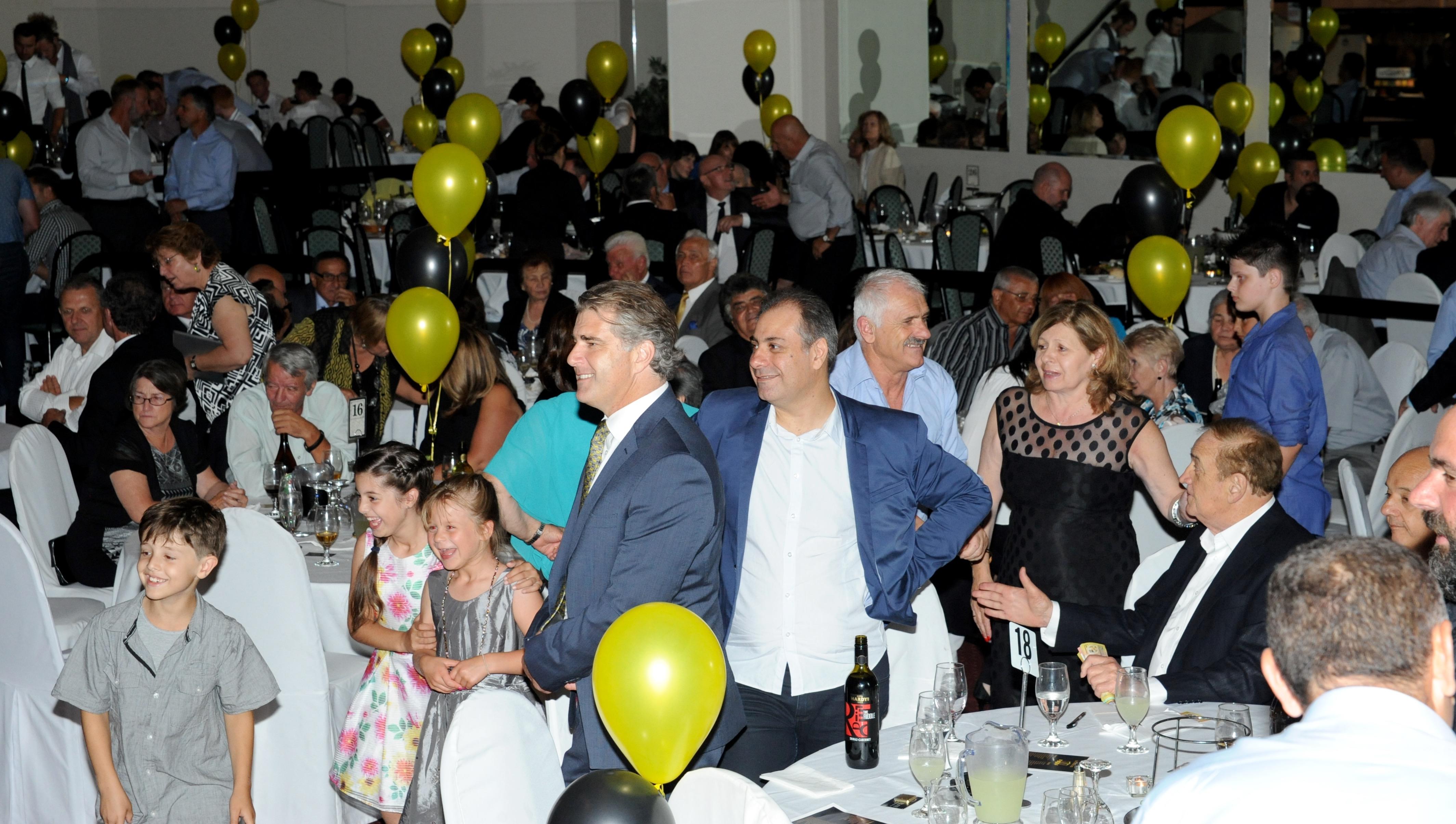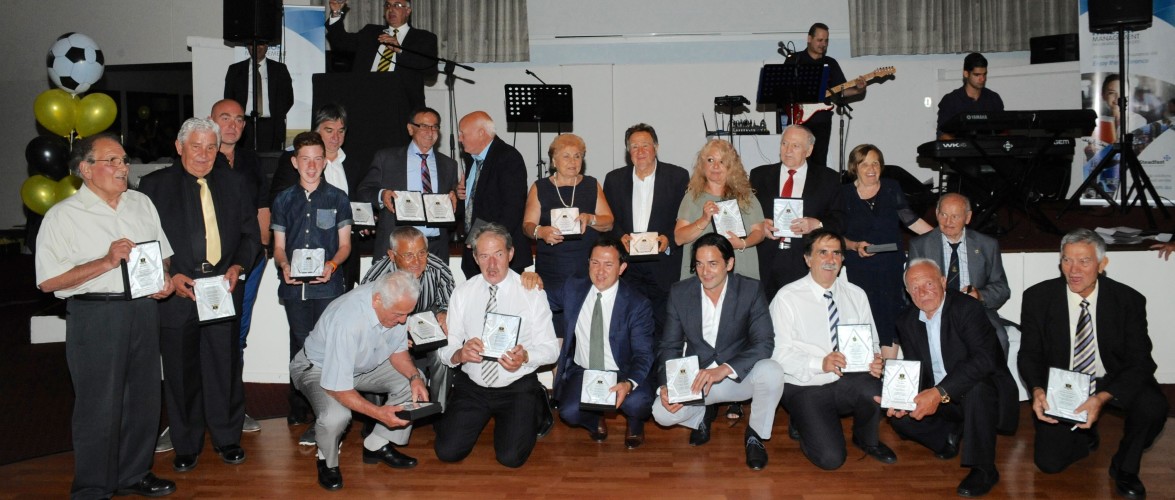Walking into Stars Reception in Preston, one of the first items visible at the stage for the silent auction is a gloriously framed Central Coast Mariners jersey signed by Dan Heffernan. Next to it is a commemorative plaque of the Heidelberg United’s FFA Cup clash with Melbourne City. They juxtapose the nearby club blazers, which survive to this day from decades past.
They’re small brushes with the footballing mainstream that may not match the magnitude of their contemporaries, but the stage itself serves as a reminder of the elements Heidelberg’s successors on the national stage struggle to forge – culture and identity.
The club originally established as Alexander the Great SC in 1958 by Greek immigrants from Florina in Northern Greece was celebrating both its season launch and Hall of Fame night. What emerges from the outset is that once somebody becomes a Berger, whether as a player, staff member or fan, their association with the club endures the test of time. From octogenarians to the new generation, that a member federation club can fill out an almost 500 capacity venue is reflective of the camaraderie at Olympic Village.
Festivities were launched by the introduction of the 20s, men’s and women’s sides.
While the turnout from the youngsters left a bit to be desired, the joke was that only the best players from the squad needed to turn up.
The women’s team followed. Testament to the loyalty the club has been able to breed, the new NPL era for the women’s side saw the return of former W-League player Rita Mankowska, on her comeback from working and playing in Western Australia – the defender said she had only ever considered to play at her childhood club in Victoria.
Captain Michelle Verzi took the stage and credited the personalities for making the club what it is today. She too encapsulates the Alexander spirit – having arrived from the USA to play in Australia in 2009, seven years later she’s still going strong at Olympic Village.
The men’s team was next. Alongside the smattering of new squad members was the core of the side that brought Heidelberg back to its glory days the national stage, albeit briefly, in 2015. Coach George Katsakis was invited to speak and detailed the profound impact that night had in reuniting old faces with the club.

Assistant Jeff Olver, once Katsakis’ boss, lauded his “brother” and thanked the club. If it weren’t for Heidelberg, he says, he wouldn’t be where he is today – a 37-time Socceroo international and one of the nation’s finest goalkeepers, whose playing career included two separate stints at Olympic Village.
The night then moved towards honouring the founders and pioneers that helped Alexander grow from its inception.
The new and the old again bonded as current FFV president, Kimon Taliodoros, took the stage to introduce one of the predecessors to his role – former Heidelberg treasurer and VSF president John Dimtsis.
In his speech, Taliodoros mentioned two achievements that stood out most to him. One was, unsurprisingly, that FFA Cup night, and the other was Heidelberg’s successful women’s NPL bid. Heidelberg are one of the few clubs in Victorian football – alongside Bulleen Lions and Box Hill United (NPL2) – to harbour both a men’s and women’s side in the top flight of Victorian football. Taliodoros lauded the club for working to harness the growth of the game for both genders.
He then introduced Dimtsis, who received one of the loudest ovations of the night. He had been unwell in recent times but triumphantly made his way to the microphone, where he said the Warriors had opened his heart and would always remain his club and his family.

Involved as treasurer at Heidelberg, he joined the board of the old Victorian Soccer Federation in 1972 and became treasurer in 1973, while still remaining at Heidelberg United. In 1980 he was appointed president of the VSF and held the position until 1991. Along with Vito Cilauro and George Wallace, Dimtsis introduced the Victorian Premier League in 1991. He became treasurer and Deputy Chairman of the Australian Soccer Federation overseeing referees, juniors, indoor soccer and women’s football. After his period at the ASF he returned to Heidelberg, completing his spell as president of the club in 2014. He is also a life member of the VSF and FFV.
George Baniscas, founding president, was another who was presented to rapturous applause. He led the committee that attracted large numbers of migrants looking for opportunities to help settle in Australia and socialise in the 1950’s and beyond.
Including the induction of Dimtsis, a further 18 names were made honorary life members of the club: Peter Boubis, Nick Dimos, George Evgeniadis, George Ioannidis, Peter Kreskas, Jim Kriaris, Arthur Loustas, Chris Mavridis, Victor Nicolaidis, Tasos Peponis, Chris Saristavros, Con Saristavros, George Saristavros, Steve Stefanidis, Anastasios Tamos, Peter Tsaklis, Lewis Yoannidis and Mike Zafiropoulos.
The rest of the inductees followed, to forever go into the Bergers newly formed Hall of Fame, including the class of 1960 – the Bergers’ first ever Championship side – and the founding members of their 1958-59 side.
On the playing side, Con Bekiaris, Con Bubis, Alex Boutlis, John Dafinis, George Dinis, Theodoros Doukas, Nikitas Hatzigeorgiou, Angelo Iordanis, Kostas Korfiatis, Dimitrios Koumaros, Stefanos Naoumidis, John Ninis, Jim Filipou, Savvas Sakelaridis, Savvas Savidis, Con Racovalis, Nick Romanidis, Theodoros Tangas, Michael Triantafylidis, John Vizovitis, Kostandinos Xanthopoulos and Konstantinos Zigomanis made up the 2016 inductees.
Not only on the field did Heidelberg recognise the work of those on the pitch, but also the toilers behind the scenes, with 11 inducted into the Hall of Fame for their committee work – Tryphon Avramopoulos, Kostas Boutlis, Marcos Economides, Petros Economides, Kostas Goulopoulos, Vasilis Iliopoulos, Arthur Nicolaidis, Loui Pavlidis, Tryfon Racovalis, Chris Samartzis and Nicholas Themelkos.
It’s just the beginning, with the club announcing their plans to make this an annual event, in order to commemorate the championship winning sides of years past.
Incredibly, this was the kind of night that perhaps even earlier in the century may not have been plausible. Struggling both on and off the pitch, it wasn’t until Katsakis and new business-oriented committee helped the club flourish once more.
It’s worth revising his thoughts on the club in 2015, detailing both the struggles and triumphs, to see how far the club had come over time.
“The financial troubles which plagued the club in the last decade began around 2007 when I was appointed head coach, and I went in and tried to make the relative changes and to a degree we were heading in the right direction,” Katsakis said at the time.
“But the history of the club and the path it was going on was not the best, as it had lost a lot of supporters and the momentum they had built up over the years had stalled, with the club deteriorating in stature.
“I can safely that Heidelberg has been my club at heart and being coach of such a proud club you tend to give it that little bit extra knowing that you’ve got everyone behind you.
“History is something we can’t change and there is a reason for everything, with the likes of Heidelberg always remaining big clubs, irrespective of what changes transpired over the years.”
With that, Heidelberg enter the new season having paid respect to the past, but with an understanding that it’s now their chance to make 2016 an historic year in its own right. Their own chance to reflect on this season may just be waiting in the not too distant future.

Photos: Con Deves

